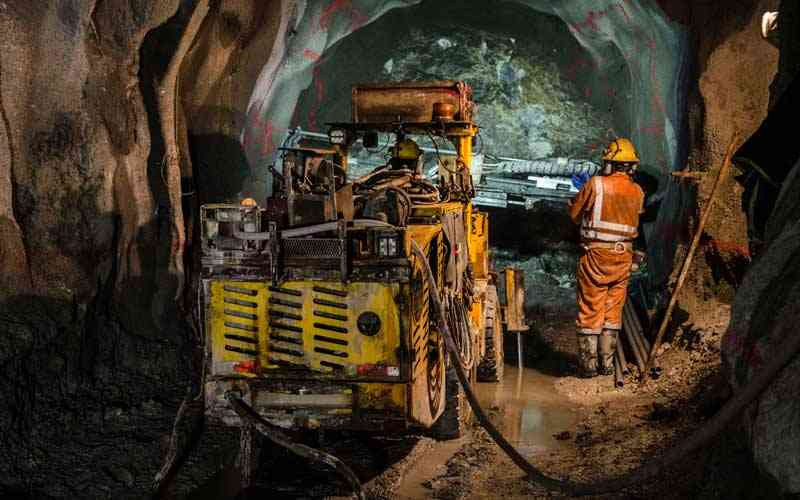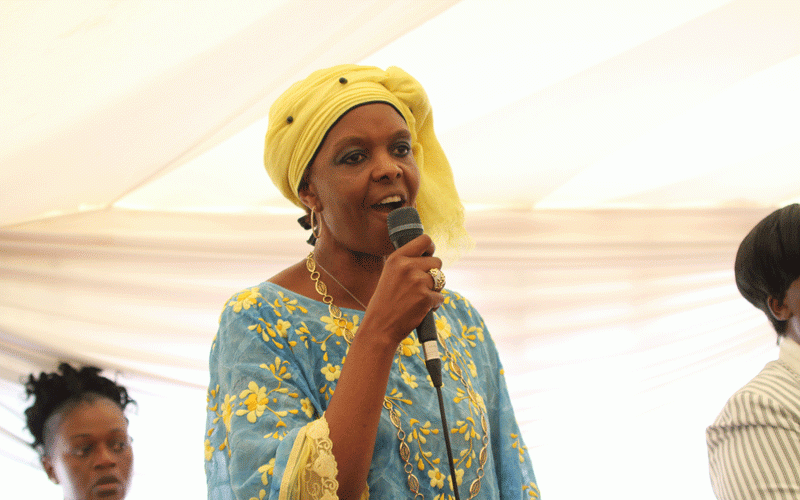
EXPERTS have rebutted claims that Zimbabwe's mining tax rates are too high, pointing out that the country's tax regime is in fact consistent with regional and international norms, and comparable to other countries globally.
However, they did acknowledge that the country lacks consistency in policy implementation, which creates instability.
At the Chamber of Mines of Zimbabwe's (CoMZ) annual conference in Victoria Falls last week, mining companies expressed concerns about the country's mining tax regime, citing it as a hindrance to growth.
They argued that the 20% capital gains tax, applied retrospectively on the full purchase price, was excessive and detrimental to investor confidence.
Additionally, they lamented that the royalties for platinum, lithium, and diamonds remained high at 7%, 5%, and 10%, respectively.
But a report titled: The Probable Impact on Zimbabwe Mining Fiscal Revenue and Industry Competitiveness of Various Price, Production & Fiscal Scenarios: Incorporating a Quantitative Case Study of the Gold Sector reveals that the country’s tax regime was average.
It was released in June 2016.
A comparison between Zimbabwe’s mining corporate income tax with other mining jurisdictions reveals that most countries apply a standard national rate in the range of 15% to 35% which is in line with Zimbabwe’s corporate tax rate of 25%, although Zimbabwe also offers a reduced rate of 15% to holders of special mining leases, which are mining firms with investment in excess of US$100 million.
- Mines propose fresh power import deal
- Motorist robbed while relieving self
- RBZ shifts blame to companies
- Forex retention policies ruin mines
Keep Reading
Ghana had the highest corporate income tax at 35%, followed by Australia (30%), South Africa (28%), Burkina Faso (27,5%), Chile (24%) and Canada (15%).
Despite Canada appearing to have a low corporate income tax, provincial general corporate income tax and branch profits tax were also levied at mining companies at 11 to 16% and 25%, respectively.
In South Africa, corporate income tax was levied at 28% for both resident and non-resident companies, with gold mining companies taxed according to a special formula.
Ghana differentiates the standard 25% rate of corporate income tax with that of mining companies which is pegged at 35%. An additional 8% tax is imposed on repatriated profits of branches of non-residents operating in Ghana.
In Chile, additional withholding income tax for non-resident entities should be paid upon distribution of profits.
A 35% additional withholding income tax applies to remittance of profits attributable to branch, with 24% first category income tax paid at branch level creditable.
“Zimbabwe’s corporate income tax is within regional and international norms; hence it could continue to operate at the same tax rate,” the report reads in part.
The report noted that the country’s royalties were generally among the highest in the region.
For example, for gold royalty rates for some regional countries are as follows: Angola 5%, Zambia 5%, Burkina Faso 3 to 5%, Tanzania 4%, Botswana 3%, Senegal 3%, South Africa 3% unrefined and 1,5% refined, and Democratic Republic of Congo 2%.
“However, mineral by mineral, besides diamond, other precious stones, and platinum which are charged at 15%, 10% and 10% respectively, royalties for other minerals are generally competitive globally,” it noted.
For example, for copper Zimbabwe is at 2% while Canada is at 16%, Chile 14%, Indonesia 4%, India 4,2%, DRC 4% and Argentina 3%.
For coal, Zimbabwe is at 1%, Canada 16%, Chile 14%, China 4%, Argentina 3%, DRC 3%, Ghana 5% and Indonesia 7%,” it noted.
“Even the gold rates in Zimbabwe are globally competitive.”
During the CoMZ conference, miners called for more tax incentives and tax holidays.
Tafara Chiremba, an economic governance officer at Zimbabwe Environmental Law Association, said mining taxes compared fairly with other countries in the region.
“So, in terms of taxes I think Zimbabwe is not bad in terms of our taxes that are being charged on mining activities. We compare very well with other neighbouring countries such as Zambia, Tanzania, etc,” he said.
“Maybe the only issue is around the other challenges, for example, policy uncertainty, cost of doing business and energy issues.
“These challenges tend to sort of classify Zimbabwe as a high-cost country in terms of investment. But if these issues are really addressed, I don't think we can say that Zimbabwe has got very prohibitive taxes.”
Chiremba said granting of additional tax incentives should be informed by the discussion around ensuring that these mining companies also own up to the environmental obligations.
“This is a sector that is responsible for all these challenges that we have seen in communities. So, giving tax incentives to mining companies should not jeopardise the environmental costs that we are already seeing,” he said.
“We don't want to suffer more when we give tax incentives and at the same time get a negative impact as a result of mining. We need to interrogate, to say how to ensure that the economy doesn't lose out twice, losing resources as a result of taking incentives, but at the same time losing out when it comes to environmental sustainability.”
He said companies were supposed to comply with the environmental obligations before lobbying for more tax incentives.
“Otherwise, we are likely going to suffer as a country if we don't consider environmental obligations when we give tax incentives.”
Taurai Mafundikwa, a communications and campaigns specialist at the Zimbabwe Coalition on Debt and Development, said compared with other countries; the country’s mining tax regime was within the average.
“The spirit of taxing these companies is fair in trying to collect funds to reinvest in our country. Tax breaks and holidays have the effect of weakening the ability of a country to achieve effective domestic resource mobilisation,” he said.
“The challenge we face is the wider leakage of public resources from the mining sector and at large. The demand is to plug illicit financial flows and corruption to ensure the full potential of mining resources is realised.”
Mafundikwa noted that due to corruption and illicit financial flows, citizens, especially mining host communities, were not enjoying the value of their resources.
“Furthermore, Zimbabwe faces the challenge of mining companies who don’t reinvest in the communities they mine in. As such, taxation becomes the only way for the government to recover value for locals,” he said.






